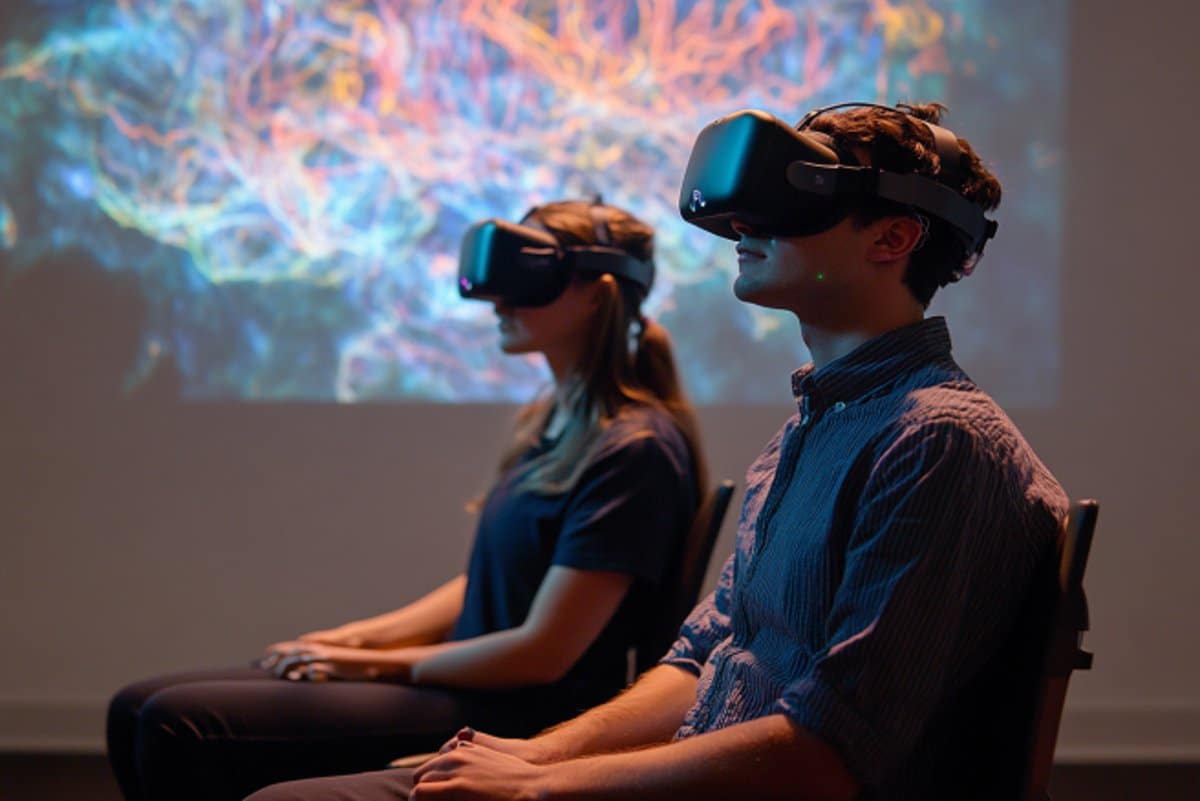Summary: Survivors of the 2018 Camp Fire in California exhibit long-term cognitive changes, particularly in decision-making. Participants directly exposed to the wildfire showed reduced ability to choose long-term rewards and displayed hyperactivity in brain regions tied to rumination.
EEG scans revealed that their brains were over-engaged during tasks requiring sound decisions, but they still struggled to execute effectively. The findings suggest that climate-related trauma not only affects mental health but also impairs higher-order cognitive function, raising the need for early interventions.
Key Facts:
- Cognitive Impairment: Wildfire survivors showed diminished ability to prioritize long-term rewards.
- Neurological Impact: EEG scans revealed overactivation in the posterior cingulate cortex during decision tasks.
- Intervention Potential: Mindfulness-based therapies may help mitigate trauma-induced cognitive dysfunction.
Source: UCSD
A new study from University of California San Diego suggests that climate trauma — such as experiencing a devastating wildfire — can have lasting effects on cognitive function.
The research, which focused on survivors of the 2018 Camp Fire in Northern California, found that individuals directly exposed to the disaster had difficulty making decisions that prioritize long-term benefits.
The findings were recently published in Scientific Reports, part of the Nature portfolio of journals.
“Our previous research has shown that survivors of California’s 2018 Camp Fire experience prolonged symptoms of post-traumatic stress disorder, anxiety and depression alongside hyper-distractibility,” said Jyoti Mishra, Ph.D., senior author and an associate professor at UC San Diego’s School of Medicine and co-director of the University of California Climate Resilience Initiative.
“This new study suggests that climate trauma may also impact important cognitive abilities of decision-making and underlying brain function.”
Wildfires, which have become increasingly frequent due to climate change, are known to affect both physical and mental health. This study provides new evidence that cognitive function — particularly decision-making — is also impacted.
The study involved 75 participants, divided into three groups:
- Directly exposed to the fire (n=27)
- Indirectly exposed (witnessed the fire but were not directly affected, n=21)
- Non-exposed controls (n=27)
All participants completed a decision-making task with monetary rewards while undergoing Electroencephalogram (EEG) brain recordings. Researchers evaluated their Win-Stay behavior, measuring how often they continued selecting the option with the highest long-term rewards.
Researchers found that wildfire survivors were significantly less likely to stick with choices that offered long-term rewards, a behavior they tracked with a choice metric known as “Win-Stay.”
Brain recordings revealed a possible reason why. EEG brain scans taken while participants engaged in the decision-making tasks showed heightened activity in the parietal brain region, and localized to the posterior cingulate cortex (PCC) — a brain region associated with deep thought and rumination.
“It was clear that brains of study participants directly exposed to wildfires — as opposed to those not exposed — became significantly hyper-aroused when trying to make proper decision choices but they were still unable to execute the task well,” said Jason Nan, a UC San Diego bioengineering graduate student and study first author.
“We interpret this to mean that their brain was attempting to focus on making sound decisions, but they were unable to.”
Understanding how climate trauma affects decision-making could lead to new diagnostic tools and personalized treatments for those impacted.
One potential intervention is mindfulness and compassion training, which has shown promise in suppressing ruminating thoughts and thereby, mitigating the effects of trauma.
Mobilizing early post-disaster intervention resources is a key priority of the California Climate Resilience Initiative.
As climate disasters become more frequent and more severe, researchers emphasize the need to: study pre- vs. post-disaster cognitive changes, investigate long-term effects of repeated exposure to climate trauma and develop scalable mental health interventions for affected communities.
Co-authors include: Satish Jaiswal and Dhakshin Ramanathan from UC San Diego, and Mathew C. Withers from Utah Valley University.
Funding: The study was funded, in part, by the Tang Prize Foundation, the Hope for Depression Research Foundation and the CA CARES (Climate Action, Resilience, and Environmental Sustainability) proof of concept funds.
About this trauma and decision-making research news
Author: Lizelda Lopez
Source: UCSD
Contact: Lizelda Lopez – UCSD
Image: The image is credited to Neuroscience News
Original Research: Open access.
“Climate trauma from wildfire exposure impacts cognitive decision-making” by Jyoti Mishra et al. Scientific Reports
Abstract
Climate trauma from wildfire exposure impacts cognitive decision-making
Climate trauma refers to the chronic mental health sequalae of climate disaster events. We have previously shown evidence for such trauma with accompanying anxiety and depression symptoms after California’s 2018 Camp Fire wildfire.
Here, we investigate whether this climate trauma also impacts cognitive decision-making and its neural correlates.
One year after the wildfire, we recruited three groups – those directly exposed (n = 27), indirectly exposed (community members who witnessed the wildfire but not directly exposed, n = 21), versus non-exposed controls (n = 27).
Participants performed a decision-making task that led to immediate and cumulative point rewards on each trial with simultaneous electroencephalography (EEG) recordings.
We evaluated Win-Stay behavior in choosing to stay with the greater expected value (cumulative reward) option. Directly-exposed individuals showed significantly reduced Win-Stay behavior relative to the other groups.
EEG analyses showed significantly greater parietal alpha activity for the selected choice and ensuing rewards in directly fire-exposed individuals, with an underlying cortical source of this activity in posterior cingulate cortex.
Overall, these findings suggest that climate trauma may significantly impact neuro-cognitive processing in the context of value-based decision-making, which may serve as a useful biomarker target for future mental health interventions in climate change impacted communities.





